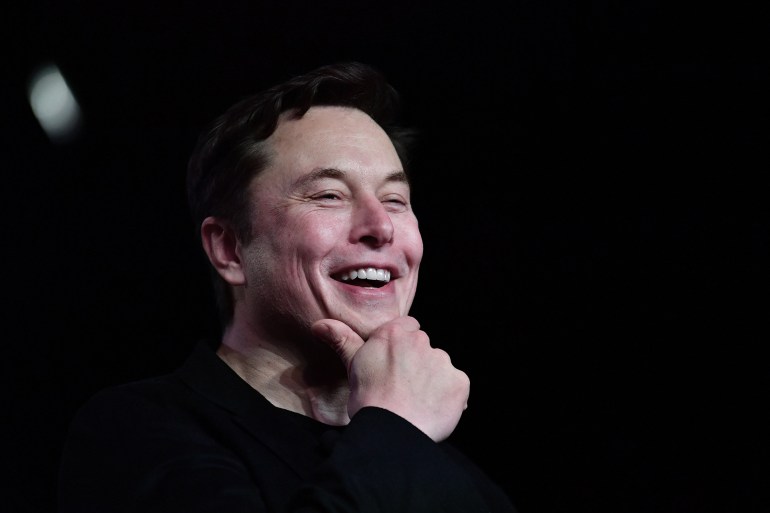After Elon Musk signaled his intention to back out of his $44 billion bid to buy Twitter, the fate of the influential social network will be decided by a protracted court battle, possibly involving months of costly litigation and negotiations, by elite lawyers from both sides.
In their article in the New York Times, Lauren Hirsch and Kate Conger said the question is whether Musk will be legally forced to abide by the agreed takeover or be allowed to back down, perhaps paying a 10-figure fine.
Most legal experts say Twitter has the advantage, in part because Musk has attached few terms to his deal to buy the company, which appears intent on closing the deal. and lawyers, instead of engaging in a protracted struggle with the world's richest man and his hordes of hard-line followers.
The authors stated that the law firm representing Elon Musk told Twitter, late Friday, that his client wanted to abandon the acquisition, arguing in his letter that Twitter had violated the agreement by not providing it with detailed information about how non-original accounts were measured.
The bureau said Musk does not believe the metrics that Twitter has publicly disclosed about the number of users, calling them fake.
Twitter's board responded by saying it intended to complete the acquisition and would sue Musk in Delaware court to force him to do so;
Note that the terms of the agreement allow Musk to break his deal by paying a fee of $1 billion, but only under specific circumstances.
Musk's desire to walk away from the deal coincided with a significant decline in the valuation of technology companies, including Tesla, the electric car company that Musk runs and is his main source of wealth.
Musk declined to comment on the matter, and a Twitter spokesperson declined to comment on when Twitter planned to file a lawsuit to enforce the takeover agreement.
The authors emphasized that for Twitter, completing the sale to Mask is vital;
Twitter cut its deal with Musk when tech companies had optimistic valuations, but some are now down sharply;
It is facing advertising pressure, global economic turmoil and rising inflation.
While legal experts said Musk's desire to back down may be a ploy to force Twitter to return to the negotiating table in the hope of obtaining a lower price.
While the deal was in place, no other potential buyer appeared to replace Musk, making his bid the best Twitter could get.
Musk's desire to withdraw from the deal coincided with a significant decline in the valuation of technology companies (French)
A clause in the contract swings the balance of Twitter
The winning card that Twitter intends to use is a "limited performance clause" that gives the company the right to sue Musk and force him to close the deal or pay for it, as long as the debt financing he obtained remains intact, but the legal authority differs from the practical reality, it is possible that The lawsuit costs millions in legal fees, takes months to resolve, and adds more uncertainty to an already nervous staff.
Disagreements over agreements often end in settlements or renegotiations of prices;
“This stuff is a bargaining move in an economic deal,” said Charles Elson, a newly retired professor of corporate governance from the University of Delaware. “It's all about the money.”
The lower price would benefit Musk and his financial backers, especially as Twitter faces financial headwinds, but the company has made it clear that it wants to force Musk to stick to his $44 billion offer;
Where the collapse of the deal will be the most harmful outcome for Twitter.
In contrast, Musk needs to show that Twitter has materially and intentionally violated the terms of his contract, as he claims that Twitter is withholding information necessary for him to complete the deal, and he may also argue that Twitter misreported its spam numbers, and that misleading statistics hid a serious business problem. Twitter.
The authors stated that forcing the acquirer to buy a company is a complex process that must be supervised, and the advisor may not want to order the buyer to do something that he may not pursue in the end, which is a particularly acute risk in this deal, given Musk's habit of mocking legal restrictions, according to the authors. "The worst-case scenario for a court is that they make an order and he doesn't comply, and they have to figure out what to do about it," said Morgan Rex, a professor at Vanderbilt Law School.
The Securities and Exchange Commission revealed in May that it was reviewing Musk's purchases of Twitter shares (Reuters)
The authors note that if Twitter renegotiates the acquisition price or agrees to cancel, it will likely face further legal problems;
Shareholders will sue it in either scenario, adding to the many shareholder lawsuits Twitter is already facing over the acquisition.
Last April, financial analysts considered that Musk's purchase price for Twitter was low, and Twitter shareholders might reject if the company agreed to reduce the acquisition price further, and the separation could also lead to more legal scrutiny of Musk;
The Securities and Exchange Commission revealed in May that it was reviewing Musk's purchases of Twitter shares and whether he had correctly disclosed his stake and intentions to the social media company.
In the end, according to the authors, the takeover is just a set of cards.
“A piece of paper can give you a lawsuit if the buyer wants to back off, but experience doesn't give you a bargain, and it usually gives you long-term headaches and a money-losing company,” said Ronald Baruch, a retired merger and acquisition attorney.

